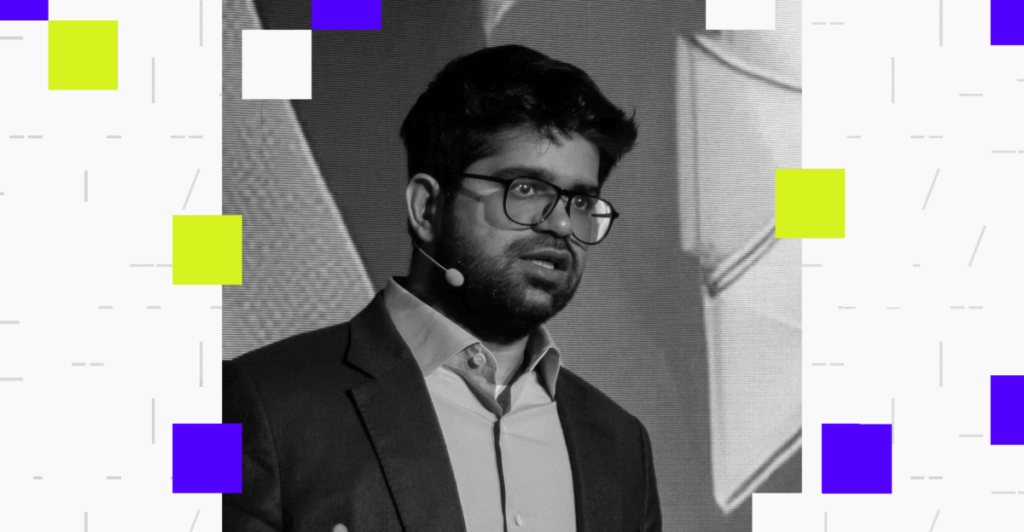
Aravind Srinivas is battling Google to get his Perplexity AI assistant preinstalled on Android phones. At the same time, the CEO is refocusing his startup on what he predicts will be the next battleground in the AI race: your web browser.
Perplexity plans to release its own browser called Comet next month, Srinivas tells me. “The reason we’re doing the browser is that it might be the best way to build agents,” he says. “A browser is essentially a containerized operating system. It can let you access other third-party services through hidden tabs if you’re already logged into them, scrape the page on the client side, and perform reasoning and take actions on your behalf.”
Other AI firms are already going in this direction. OpenAI’s Operator and Google’s Mariner both rely on the browser to execute commands and control websites. OpenAI has yet to release its own browser but is rumored to be developing one. Google, meanwhile, may be compelled by the US government to sell Chrome following its ruling that the company has a monopoly in the search market.
One of Srinivas’s deputies testified that Perplexity would like to run Chrome if it were spun out from Google, while OpenAI has also thrown its hat into the ring. (Don’t count out Yahoo, too, I guess?)
While the fate of Chrome remains unknown, antitrust scrutiny on Google has already created an opportunity for Perplexity to enter into distribution deals with Android phone manufacturers. This week, Motorola announced that Perplexity would be pre-installed on its new Razr phones, giving Srinivas’s self-described AI “answer engine” access to potentially millions more customers. He says it’s not as deep an integration as either he or Motorola wanted, but for a smaller startup like Perplexity, he still sees it as a victory.
“If Google had not gone through the DOJ trial, we wouldn’t have been able to make this partnership happen,” he says. “They would have bullied a lot of the OEMs. I have had conversations with telcos where they would not even listen to us or take meetings with us because of the fear that, if Mountain View becomes aware, their revenue share could be reduced.”
When I last spoke with Srinivas just over a year ago, Perplexity had about 1 million users and had raised less than $100 million. Now, the startup has nearly 30 million monthly active users and has raised hundreds of millions of dollars. Srinivas says Perplexity is currently serving about 600 million queries a month, which is roughly 14-percent of Google’s query volume.
The following conversation with Srinivas took place the day before his announcement with Motorola. We covered the other kinds of partnerships he’s exploring to broaden Perplexity’s reach, why he’s betting on owning the browser interface, how he managed to build an iOS assistant that controls other apps, his conversations about running TikTok, and more.
The following conversation has been edited for length and clarity:
Walk me through how the Motorola partnership came about and the challenges you faced with Google.
Conversations accelerated when we showed them a demo of the Perplexity Android assistant, which launched in January. They tried it out and it was working pretty reliably — way better than Gemini. They got excited about preloading the app and push-notifying users to make Preplexity the default assistant. Google stopped them by saying they cannot go ahead with the launch of the phone using the Play Store and the official version of Android if they do not have Gemini as the default system.
If Google had not gone through the DOJ trial, we wouldn’t have been able to make this partnership happen. They would have bullied a lot of the OEMs. I have had conversations with telcos where they would not even listen to us or take meetings with us because of the fear that, if Mountain View becomes aware, their revenue share could be reduced.
It takes seven or eight clicks to change the default. Google still has a strong hold on the Android ecosystem.
Samsung has invested in you. It would make sense for that to lead to some kind of partnership, like the one you announced with Motorola, right?
Yeah. I hope we can find a way to work with them. I don’t know who will get the default, or if it will be an onboarding step. All of this is up for debate.
It seems like you’re very focused on distribution and partnerships for growing Perplexity.
We want to work with anyone. We’ve already been working with telcos. We want to expand to OEMs. Next will be a browser, and we’ll have versions of it for Mac and Windows. We’ll try to start working with OEMs there, too.
Similar to how Google has all its relationships with OEMs on Android, Microsoft has even worse contracts with OEMs on laptops. So we need to fight that uphill battle there, too. We have to be clever and fight. It would be very hard to find people who will objectively say that Copilot is a better product than Perplexity, but Copilot is the only AI that gets natively loaded on Windows.
You just released your assistant on iOS, and people seem surprised at what it can do. Did Apple give you special permissions to control other apps?
They did not give us permission. You cannot use our system to set an alarm, enable low power mode, adjust the brightness or volume, or turn the flashlight on and off. You cannot make a phone call or send an iMessage.
We decided to use the Apple EventKit SDK because it exposes Reminders, Podcasts, Apple Music, Apple Maps, and some other Apple apps. We are able to call that [SDK] and use our own search infrastructure and deep linking to apps like YouTube and Uber.
Everybody says Siri doesn’t work, but Siri does work for just setting up alarms and making phone calls, right? Where Siri doesn’t work is finding the right song, finding podcasts and YouTube videos, setting smart reminders, and hailing Uber rides. I think we nailed all those use cases.
Why are you doing a browser? And when is it coming?
The reason we’re doing the browser is that it might be the best way to build agents. On both iOS and Android, we don’t have OS level control. You cannot easily call apps and access their information. You can deep link to them, but for example, with Uber, I cannot go and check prices of different Uber rides and provide you Comfort if there’s not much of a price difference. I cannot compare prices between Uber and Lyft to get the best ride. I cannot compare the wait times between Uber Eats and DoorDash to get whatever is optimal.
So, we need to build an OS-level agent, and a browser is essentially a containerized operating system. It can let you access other third-party services through hidden tabs if you’re already logged into them, scrape the page on the client side, and perform reasoning and take actions on your behalf. That’s the architecture that appeals to us.
Answering questions is going to be a commodity. We need to build our next set of advantages in performing actions. That’s why we’re building a browser. The browser is the best place to take action for people. We want to move to a different front-end.
Many publishers have been upset with you for scraping their content. You’ve started cutting some of them checks. Do you feel like you’re in a good place with publishers now, or do you feel there’s still more work to be done?
I’m sure there’s more work to be done, but it’s in a way better place than it was last time we spoke. We are scraping but respecting robots.txt. We only use third-party data providers for anything that doesn’t allow us to scrape.
You are reportedly raising hundreds of millions of dollars at a $18 billion valuation. How are you going to use that money?
To build agents reliably, you need to use the frontier reasoning models. Whatever is expensive today will get really cheap one year from now, but we cannot wait till then. We need to roll this out to as many users as possible to collect all the data, distill it into smaller models, and reduce the cost.
What’s the status of your bid for TikTok? Have you spoken to the White House recently? There were questions about how you would fund it.
I haven’t given up on it, but I would say it’s not like I had the best shot. I think everybody knew that. I don’t think that [funding] is the issue. There were enough backers who wanted to back me.
What we heard from the ByteDance people was not a funding-related issue, either. It’s more the willingness to keep controlling the algorithm. I think they want to retain ownership and control of it, and they believe nobody else can do it as well as they can. The app that runs in America and Europe is also heavily tied together. It’s very difficult to decouple that. Tariffs are going to control everything, including TikTok.
Do you worry about the scale of ChatGPT and it being good enough for a lot of people who now won’t try Perplexity? ChatGPT is also creating user lock-in by remembering things and becoming more personalized.
I think their strategy, at least based on what Sam Altman said in the Ben Thompson interview, is to put a “Login with ChatGPT” button on third-party apps and then use that to ingest all the data into ChatGPT. But that requires convincing all the third-party apps to put a “Login with ChatGPT” option.
Our strategy is to allow people to stay logged in where they are. We’re going to build a browser, and that’s how we’ll access apps on behalf of the user on the client side.
I think memory will be won by the company that has the most context. ChatGPT knows nothing about what you buy on Instagram or Amazon. It also knows nothing about how much time you spend on different websites. You need to have all this data to deeply personalize for the user. It’s not about who rolls out memory based on the retrieval of past queries. That’s very simple to replicate.
What is hard is importing your transactions, your commerce, your history, and all the stuff on your browser, into your assistant in a cross-platform way. That’s why we need to not just build a browser on the web but also on mobile, and share the cookies across all the apps. That’s the challenge.
It sounds like you see the browser is the final frontier for what you’re building.
There’s more beyond that, which is to build Windows, Mac, Android, or iOS. A browser is very restricted and containerized. The OS is the ultimate game.
- OpenAI needs more compute: That was a prevailing theme from its closed-door investor day in San Francisco this week. I’m told that OpenAI leadership shared concerns about gaining access to the computing power needed to support ChatGPT’s rapid growth. To those in the room, this need felt more pressing than even achieving profitability. This suggests that, despite efficiency gains the industry has seen from DeepSeek and others, the cost per token for frontier models is continuing to rise. (The Information also has a great breakdown of OpenAI’s latest financial forecast, which predicts that “revenue from free users and other products will reach $25 billion, or one-fifth of all revenue” in four years.)
- Rapid fire: Elon Musk said he’s stepping back from DOGE in May. / Apple and Meta were hit with the EU’s first DMA fines, which the US called “economic extortion.” / Meta laid off employees in Reality Labs. / Intel is “flattening” its teams and moving to a four-day-a-week in-office policy. / Google is forcing some remote teams to return to the office three days a week.
Noteworthy career moves / job openings:
- Discord co-founder and CEO Jason Citron is stepping down to play Final Fantasy VII Rebirth. (You’ve got to love a founder who keeps it real.) Humam Sakhnini, formerly an exec at Activision Blizzard, will be Discord’s new CEO ahead of the company’s planned IPO. While his roots in the gaming world run deep, Citron never struck me as the kind of person who would want to be the face of a public company. The question now is whether Sakhnini will continue to focus Discord on gamers or try to broaden its scope again.
- Sam Altman stepped down as chairman of nuclear-energy company Oklo. His statement suggests that the move is intended to help clear Oklo of any conflicts of interest as it pursues AI partnerships. While Oklo is publicly traded, and therefore subject to stricter governance, I’ll be interested to see if Altman disentangles from other startups he’s involved in.
- Ranjit Desai and several other leaders have been moved from Apple’s Vision Products Group to work on Siri.
- DeepSeek is hiring product leaders in China to build a “next-generation intelligent product experience.”
- The Gemini app has 35 million daily and 350 million monthly users.
- User growth for Microsoft Copilot is flat year-over-year, with 20 million weekly users.
- Dario Amodei writes about the “urgency of interpretability” in the AI race.
- Kevin Systrom came out of retirement to throw shade at Meta.
- The battle to retain talent at near-IPO startups like Figma.
- X’s ad growth is anemic, but at least it can “sell” data to Grok.
- Inside Amazon’s “Project Greenland” initiative to shore up GPUs.
- Phoebe Gates, the daughter of Bill and Melinda Gates, launched an AI shopping app.
- 60 Minutes interviewed Google DeepMind CEO Demis Hassabis.
- The mystery surrounding Infinite Reality, the $15 billion metaverse startup that claims to be worth $15 billion.
If you haven’t already, don’t forget to subscribe to The Verge, which includes unlimited access to Command Line and all of our reporting.
As always, I welcome your feedback, especially if you have thoughts on this issue or a story tip to share. You can respond here or ping me securely on Signal.
 Latest World Breaking News Online News Portal
Latest World Breaking News Online News Portal






